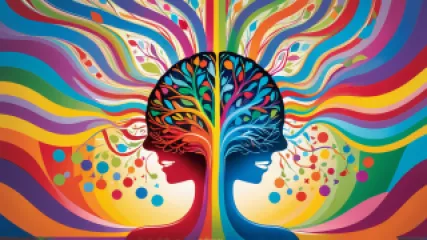10 Surprising Ways Psychology Influences Joy
Introduction:
Joy is a fundamental aspect of human experience, bringing happiness, fulfillment, and positivity into our lives. While joy may seem like a simple emotion, it is influenced by various factors, including psychology. Understanding how psychology impacts joy can provide valuable insights into enhancing our well-being and overall quality of life.
1. The Power of Positive Psychology
Positive psychology focuses on the study of positive emotions, character strengths, and overall well-being. It emphasizes the promotion of joy, happiness, and life satisfaction. Therapists trained in positive psychology techniques can help individuals cultivate joy through various interventions, such as gratitude practices, mindfulness exercises, and fostering positive relationships.
2. Uncovering Joy's Neural Pathways
Neuroscience has uncovered fascinating insights into the neural pathways associated with joy. Research suggests that certain brain regions, such as the prefrontal cortex and the amygdala, play a crucial role in experiencing joy. Understanding these neural mechanisms can pave the way for targeted interventions to boost joy and improve mental health.
3. The Role of Emotional Intelligence
Emotional intelligence refers to the ability to recognize, understand, and manage our own emotions and those of others. Studies have consistently shown a positive correlation between emotional intelligence and well-being, including joy. Developing emotional intelligence skills through therapy or coaching can enhance one's ability to experience and sustain joy.
4. Cultivating Resilience for Lasting Joy
Resilience is the capacity to bounce back from adversity and maintain a positive outlook despite challenging circumstances. Psychological resilience plays a vital role in sustaining joy, as it enables individuals to navigate life's ups and downs with greater ease. Therapeutic techniques focused on building resilience can contribute to long-lasting joy and overall mental well-being.
5. The Impact of Mindfulness on Joy
Mindfulness, the practice of being fully present in the moment, has been shown to have numerous benefits for mental health, including enhancing joy. By cultivating mindfulness through techniques such as meditation or mindful activities, individuals can increase their ability to savor positive experiences and find joy in everyday moments.
6. Exploring Joy in Relationships
Our relationships significantly influence our joy levels. Positive, supportive relationships provide a sense of belonging, love, and connection, leading to increased joy. On the other hand, toxic or strained relationships can diminish joy and lead to emotional distress. Therapy focused on improving relationship dynamics can help individuals foster healthier connections and enhance their overall joy.
7. Overcoming Barriers to Joy
Psychological barriers, such as negative thought patterns, self-doubt, or past traumas, can hinder the experience of joy. Therapy can assist individuals in identifying and addressing these barriers, allowing them to break free from limiting beliefs and cultivate a greater sense of joy and fulfillment in their lives.
8. Finding Flow for Greater Joy
Flow refers to the state of being completely absorbed in an activity, where time seems to fly by. Engaging in activities that bring about a flow state has been linked to increased joy and overall well-being. Therapeutic interventions can help individuals discover and incorporate more flow-inducing activities into their lives, leading to enhanced joy and personal fulfillment.
9. The Therapeutic Benefits of Playfulness
Playfulness is often associated with children, but it holds tremendous therapeutic benefits for adults as well. Engaging in playful activities can boost joy, creativity, and problem-solving skills. Therapists trained in play therapy techniques can guide individuals in reconnecting with their playful side, unlocking a greater sense of joy in their lives.
10. The Transformative Power of Gratitude
Practicing gratitude involves consciously acknowledging and appreciating the positive aspects of life. Research has consistently shown that cultivating gratitude leads to increased joy and overall well-being. Therapeutic interventions centered around gratitude can help individuals develop a habit of gratitude, leading to a more joyful and fulfilling existence.
Summary:
Psychology plays a significant role in shaping our experience of joy. From positive psychology interventions to understanding the neural pathways associated with joy, incorporating psychological insights into our lives can enhance well-being and overall happiness. By recognizing and addressing psychological barriers, cultivating emotional intelligence, resilience, and practicing mindfulness and gratitude, we can unlock the transformative power of psychology to boost joy and lead more fulfilling lives.






